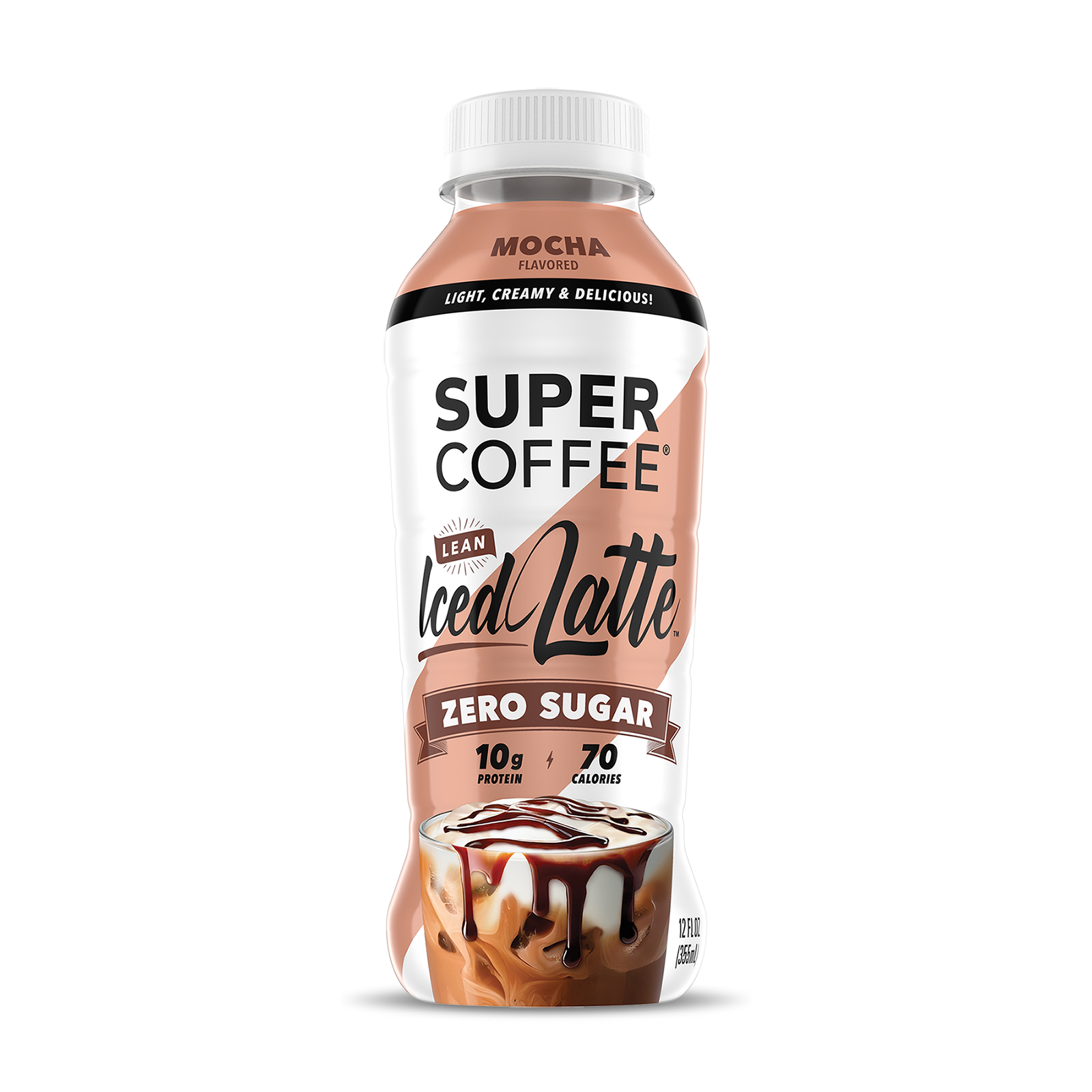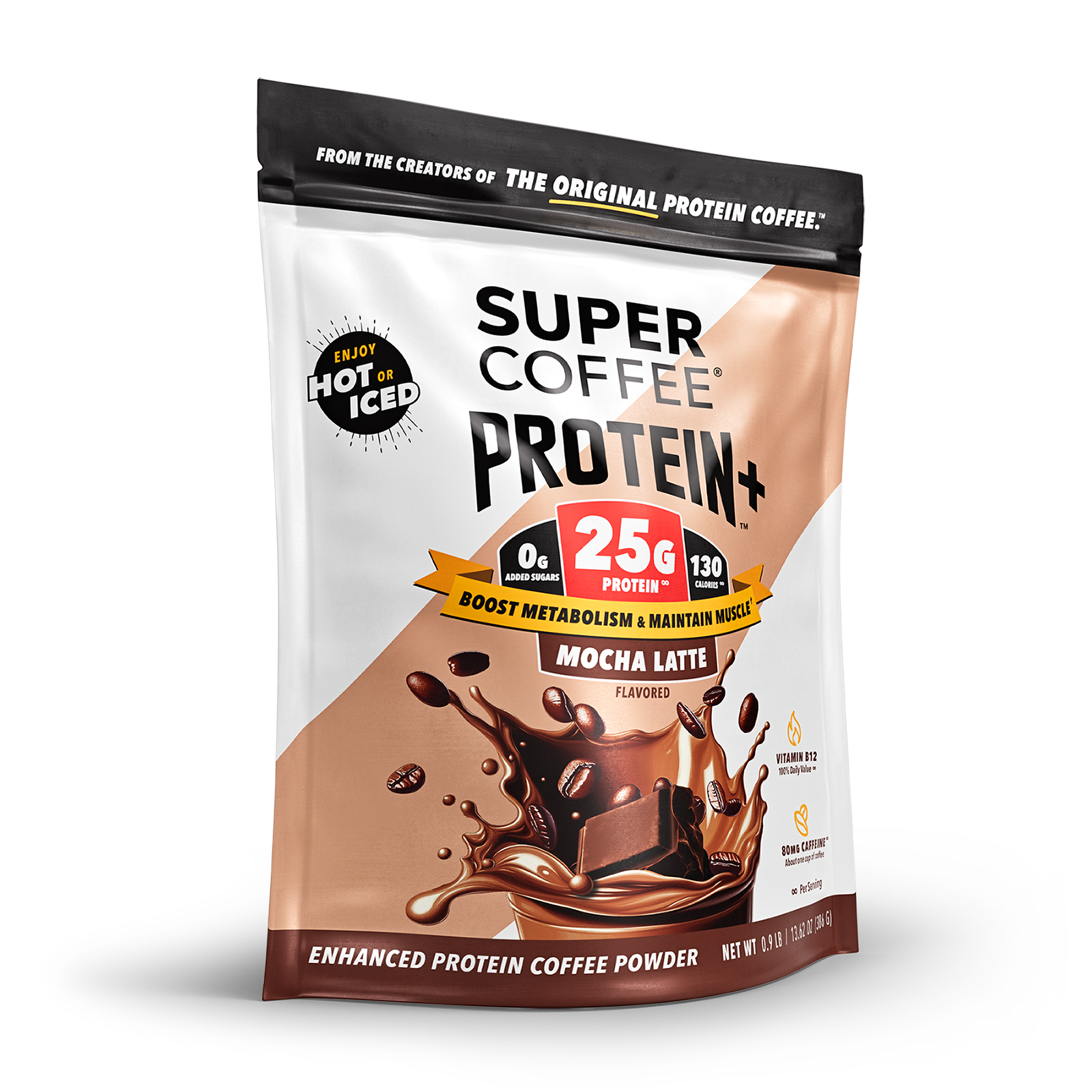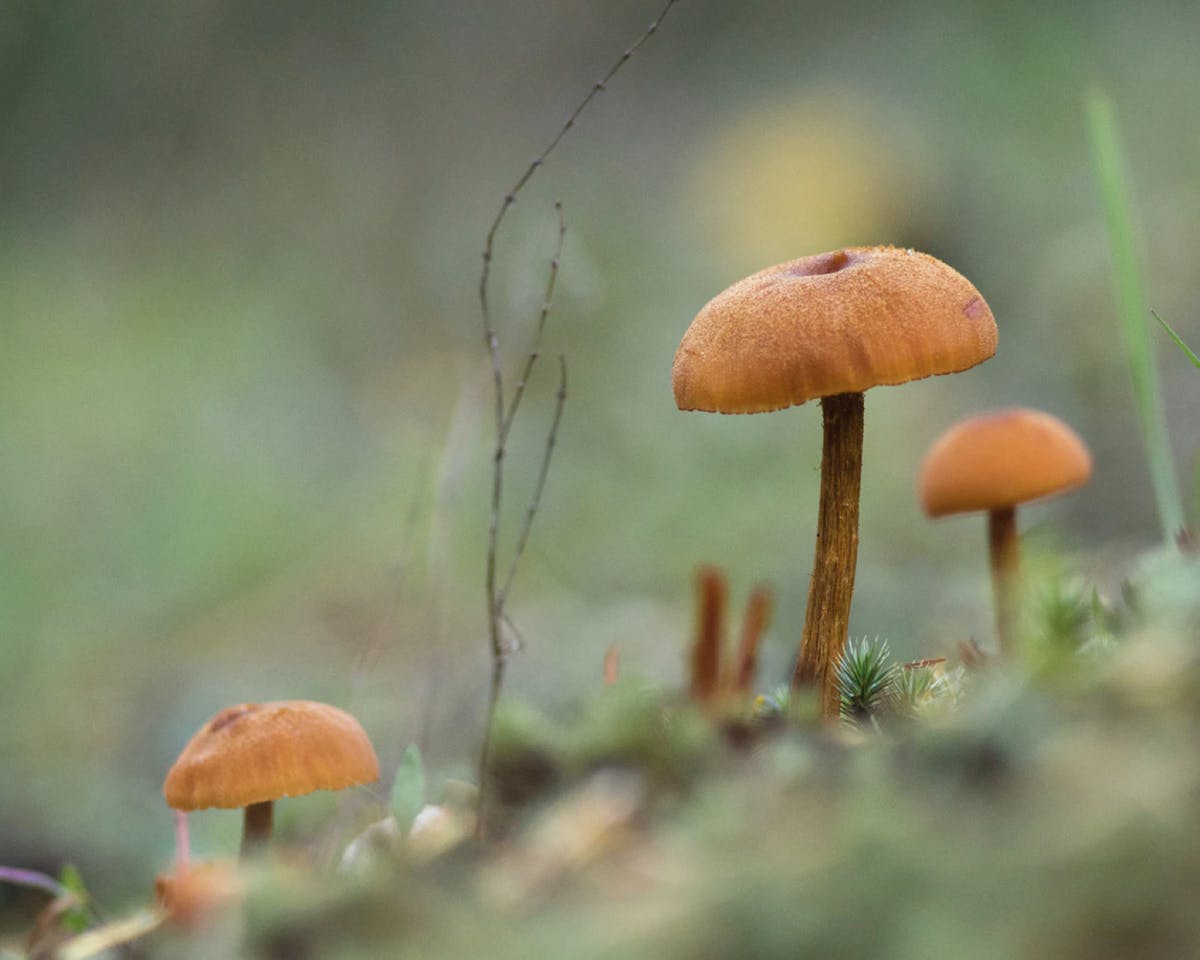Your cart is empty
Mushrooms are good for you. Coffee is good for you, too.
Mushrooms can be tasty – and needless to say, coffee tastes delicious.
But mushroom coffee?
What on earth is mushroom coffee? It’s probably good for you, but do you have to hold your nose when you drink it?
If you’ve been too busy with work, school or life in general, you may never have heard of mushroom coffee. It’s only become a “thing” fairly recently.
However, unlike most trends that vanish quickly – usually, after the originators have made their money – mushroom coffee looks like it’s with us for good. Don’t shake your head in disgust and move on just yet; this trendy beverage is much more than a few mushrooms floating in a cup of coffee.
Some might consider it an acquired taste, because it doesn’t taste exactly like a regular morning brew. It comes extremely close, though, once you’ve gotten past any initial skepticism. It’s just like drinking coffee, only with a slightly earthy taste that some people don’t even notice.
And there’s no doubt: mushroom coffee’s health and wellness benefits make it a great addition to any daily routine. In fact, it’s probably better for you than your morning espresso or evening latte.
What is Mushroom Coffee?
The obvious answer is a decent one. Mushroom coffee is coffee that’s made from mushrooms. However, that doesn’t even begin to tell the full story.
That story began about eighty years ago. During World War II, food was rationed around the world. The result was widespread shortages of most staples, including coffee. The coffee shortage hit particularly hard in Finland, where people drink more coffee than anywhere else.
Reluctant to give up their morning cup of coffee (or all the cups that followed), the Finns found a substitute for ground coffee beans: the chaga mushrooms which grew on the bark of birch trees, native to the area and easy to find. Steeping the mushrooms overnight and pressing them with hot water the next day created mushroom coffee, an acceptable substitute. Not only that, it tasted pretty good.
Mushroom coffee certainly didn’t replace the real thing after the war. If it had, we all would have heard of it long before now.
It finally became a “thing” around the turn of the 21st century. Tero Isokauppila, whose Finnish grandparents drank mushroom coffee out of necessity, decided to market it commercially through his company Four Sigmatic. Why? Because of the many health benefits the coffee could provide. (If you’re looking for a little something “extra,” we’ll have to disappoint you. Chaga mushrooms aren’t “shrooms” and won’t get you high.)
As you’d probably guess, Isokauppila’s modern-day coffee isn’t simply made by steeping chaga mushrooms in hot water. The mushrooms are cleaned, dried and ground into a powder, and the beneficial components are extracted before being added to ground coffee.
Four Sigmatic uses premium organic Arabica coffee for the blend, but some producers who have hopped on the bandwagon simply mix the ground mushrooms with instant coffee. They often use varieties of mushrooms other than chaga, or a mushroom blend. In any case, the final product tastes almost exactly like the type of coffee the mushrooms are blended with.
How successful has mushroom coffee become? Not only do many companies now sell the coffee (it’s even available on Amazon, marketed as a superfood) but you can now purchase mushroom cocoa, usually sold as mushroom cacao, as well.
What Type of Mushrooms Can Be Used?
Mushroom coffee is made with adaptogenic mushrooms, a relative rarity in the world of fungi.
It’s believed there are nearly 150,000 known species of mushrooms on the planet. Only about one-tenth of them, though, have been catalogued by scientists – and just a relative few are considered to be adaptogenic mushrooms, often referred to as “functional mushrooms” or “medicinal mushrooms.” They’ve been used for centuries in Ayurvedic medicine, and are commonly used today in alternative medicine for their many apparent health benefits.
The description “adaptogenic” is important. Adaptogens are herbs like ginseng, which increase the body’s resistance to physical and emotional stress. They also help the body deal with stress that already exists. And the “adapt” in “adaptogenic” means that they’re able to act differently in different people, providing the specific hormone, cell production or other functions required to reduce stress in the person who’s consuming the herbs.
The first known use of adaptogens in the “modern world” was actually rhodiola, which was used to help Soviet soldiers with focus more than seventy years ago. They’ve since become celebrated and valued by functional medicine practitioners. And functional mushrooms are particularly valuable, because their adaptogenic benefits are added to the benefits they share with all species of mushrooms.
Health Benefits of Mushroom Coffee
Edible mushrooms have been used medicinally for well over a thousand years, because the health and wellness benefits they provide are enormous.
Mushrooms have anti-inflammatory and antibacterial properties, they contain a wealth of antioxidants that allow them to support the immune system. They appear to be able to help prevent or treat such varied medical issues as high blood pressure and Alzheimer’s disease, strokes and cancer. They contain a wealth of nutrients and compounds that can boost gut health, they’re low in carbs and calories, and they are cholesterol-free.
As you now know, some mushroom species are adaptogenic and commonly used to make mushroom coffee, either by themselves or in a medicinal mushroom blend. In addition to all of the benefits we’ve just mentioned, they provide the stress relief that distinguishes functional mushrooms – and each species provides slightly different, additional health benefits as well.
Chaga: We’ve already highlighted these mushrooms; they have powerful antioxidant properties which regulate the immune system and help protect the body from free radical damage. There’s also some evidence that chaga mushrooms can lower blood pressure and blood sugar levels, and protect against autoimmune diseases like rheumatoid arthritis and psoriasis.
Cordyceps: In addition to supporting immune system health, cordyceps mushrooms boost energy levels by increasing oxygen flow in the body while also supporting the adrenal glands. There’s more, too: cordyceps mushroom extracts contain a metabolite that some researchers believe could have anti-cancer properties.
Reishi: Reishi mushrooms are often used in herbal medicine for their overall health and wellness benefits; the species is often referred to as the “mushroom of immortality.” They’re additionally believed to be able to lower cholesterol and promote better sleep.
Lion’s Mane: A number of studies have suggested that lion’s mane mushrooms are good for the brain, since they produce the Nerve Growth Factor bioprotein that maintains brain health while helping to prevent Alzheimer’s Disease and dementia. It’s also been shown to potentially improve cognitive impairment, while helping to ease mental health issues like anxiety and depression.
Portobello and shiitake mushrooms also have adaptogenic properties, but don’t lend themselves very well to the production of mushroom coffee. Their stronger tastes make the brew taste less like coffee and more like the fungus it’s made from.
Before we move on, there’s one more characteristic that separates mushroom coffee from regular coffee: it contains much less caffeine. (If you’re counting, black coffee contains 95mg of caffeine per eight ounces; mushroom coffee contains 50mg, almost 50% less.) That’s good news for frequent coffee drinkers who want the quick energy boost they get from their regular beverage, but hate the jitters they often feel midway through a busy day.
How to Make Mushroom Coffee
The easiest – and probably the best – way to make mushroom coffee is to purchase one of the many products that’s already being sold by a large number of companies. It comes as a coffee-and-mushroom powder which is simply mixed with hot water to produce this magic elixir. (Just kidding; it’s not magic and it’s not an elixir, but it is good for your health and basically tastes like the coffee it’s been blended with.)
A few of the brands to look for:
Four Sigmatic: The original and perhaps the best; certified and organic, they offer several different medicinal mushroom-and-coffee blends to choose from. They also sell mushroom cacao.
Sun Alchemy Mushroom Coffee: It’s USDA certified organic and it contains a full 1,000 milligrams of four different adaptogenic mushrooms.
RaHygge Mushroom Coffee: You can choose from dark roast chaga, medium roast reishi or light roast lion’s mane coffee. The blends from this Danish coffee aren’t organic, but they’re very nicely priced.
Rasa Herbal Coffee Alternative: This one differs from the rest in several ways. First of all, it doesn’t contain caffeine, because it’s made from roasted chicory and burdock. It contains a number of other adaptogenic herbs in addition to two medicinal mushrooms, and it has to be brewed in a machine that supplies pressure. All of that means it tastes a little less like coffee than the others, but it’s still healthy and quite good.
If you are in the mood for experimenting, there are vendors who now offer flavored mushroom coffee. Peppermint and anise are among the two straightforward flavorings you can choose from, but some companies sell fancier options like caramel pecan cluster mushroom coffee and chocolate hazelnut mushroom coffee. There are also powders that include several different adaptogenic mushroom blends which include a handful of additional spices like cacao, sea salt and cinnamon as additives.
In other words, as the industry grows in size, the number of alternatives continues to grow as well.
Prefer to try making your own?
If you imagine that DIY mushroom coffee involves spending time in the woods foraging for mushrooms, put away the long pants and hiking boots. Finding the right mushrooms, and then processing them the right way, is beyond the capabilities of most folks.
Instead, you’ll be buying pre-ground mushroom powder or mushroom extract. Companies like Four Sigmatic and FreshCap Organics sell pre-packaged adaptogenic mushroom blends, in powder or extract form, which are perfect for the purpose.
Add the powder to your favorite ground coffee, or to instant coffee if you prefer, and prepare it as you normally would; you can add milk or cream, sugar or sweetener, or even create a yummy homemade latte. No muss, no fuss – and a little cheaper than buying mushroom coffee packets or pods (yes, they even sell this coffee in pods now).
Super grounds make super brews.
Shop Grounds
Mushroom Coffee FAQ
Q: Is mushroom coffee keto-friendly? A: All by itself, yes. As with many foods, though, it all depends what you add to the coffee. Most mushroom blends are low-carb or carb-free, and you can make bulletproof coffee (a keto favorite with added butter and oil) with mushroom coffee as well. If you choose mushroom coffee powder with added cacao or added sweeteners, however, all bets are off.
Q: How about vegan and gluten-free? A: Yes, almost all brands of mushroom coffee will be fine for vegans and those with gluten allergies. Just be sure to check if there are added ingredients which might be problematic; that would be rare, but it could happen.
Q: Is mushroom coffee always “instant” coffee? A: Not at all. There are many choices which are designed to be brewed in a drip machine, an espresso maker, a French press or as cold brew mushroom coffee.
Q: Does mushroom coffee taste different when it’s made from different medicinal mushrooms? A: Slightly, since each mushroom variety has its own distinct taste. But since the stronger taste of the coffee predominates, there will only be a slight difference in flavor between mushroom teas.
Q: How do I choose which types of mushrooms are best? A: In truth, there’s not a lot of difference; they all have similar medicinal properties. However, we’ve highlighted the distinctive benefits of each mushroom in an earlier section, to help you decide if there’s a mushroom variety that would make the most sense for your health conditions and needs.
Q: Does it matter how the mushrooms are processed? A: Not generally. Most companies process their adaptogenic mushrooms in the same way, but there are a few exceptions. For example, some producers use the entire mushroom rather than just its cap and stem. They believe that using the whole mushroom provides more benefits, since its root structure (the mycelial biomass) contains additional healthy compounds like probiotic fibers and polysaccharides.
Q: Does mushroom coffee have any side effects? A: There are no serious side effects associated with mushroom coffee. However, some people do experience digestive issues when they consume any type of mushrooms, particularly if they are sensitive to grains or have kidney disease. Needless to say, they should avoid drinking mushroom coffee – particularly if it’s made from chaga mushrooms, which can cause kidney stones due to their high oxalate content.
Q: Do I have to limit how much mushroom coffee I drink? A: Not really, although you should remember that there is caffeine in this coffee, even though the amount is only half of what you’d get from a cup of regular coffee. If you’re one of those people who “mainlines” coffee all day, you could still end up with a case of the jitters by bedtime.
Blog posts
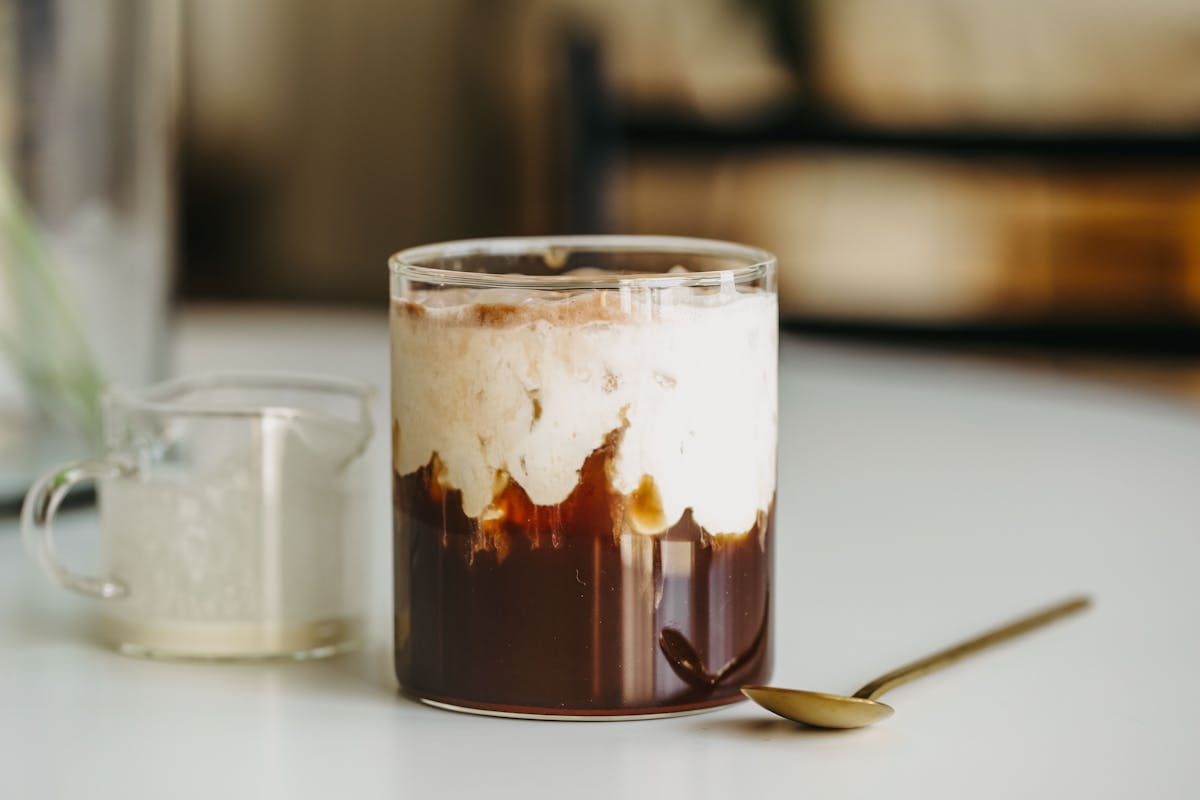
Cold, creamy and delicious - This chocolatey cold brew recipe is the perfect treat to kickstart your morning! The Recipe Chocolate Cream Cold Brew Prep Time: 1 minutes Cook Time: 5 minutes Ingre...
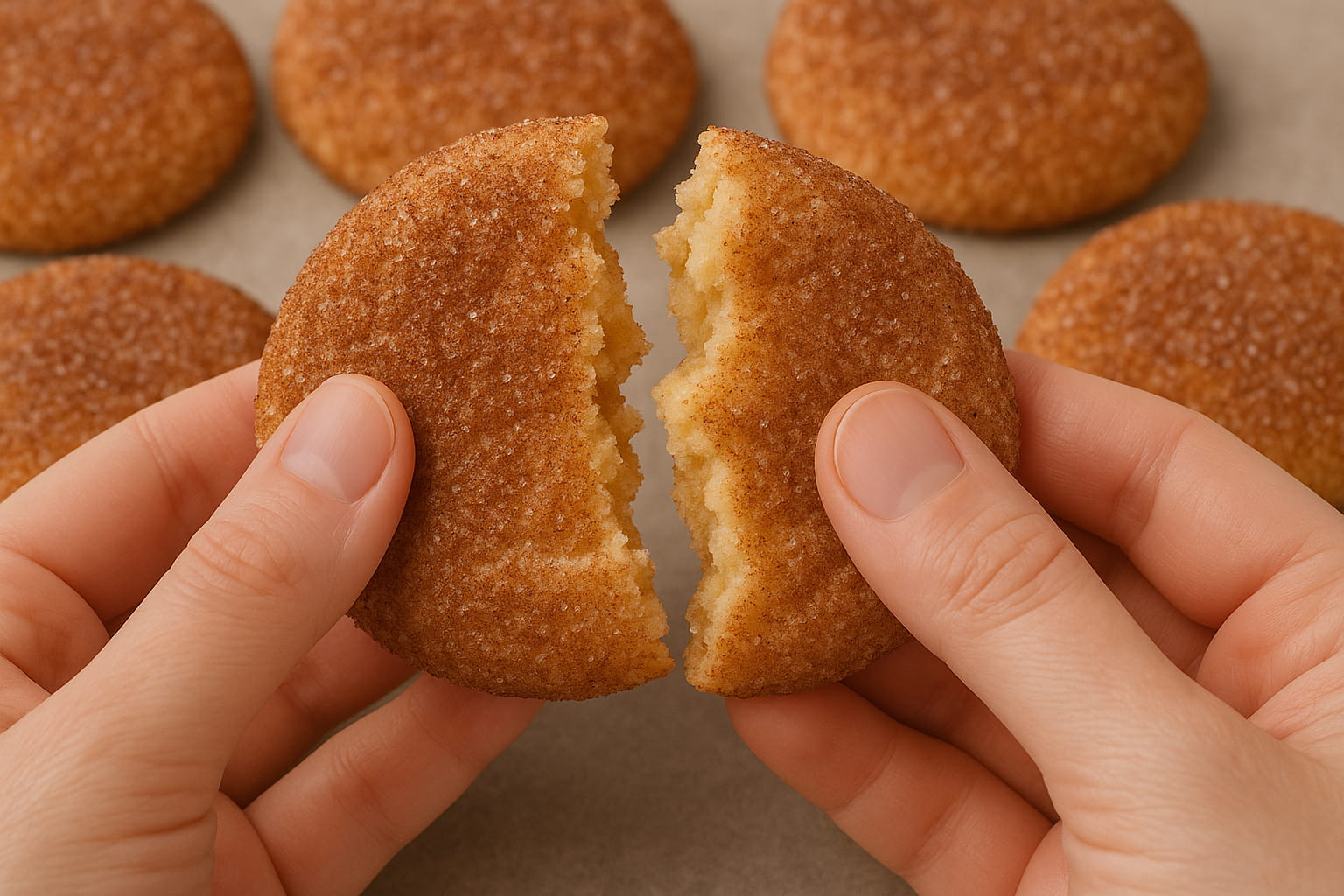
Indulge in the warm embrace of autumn with Pumpkin Spice Snickerdoodles - soft, spiced, and utterly irresistible! The Recipe Pumpkin Spice Snickerdoodles Prep Time: 10 minutes Cook Time: 1 hour ...

Low Carb Berries & Cream Waffles
These low carb/low sugar waffles are delicious, wonderfully crispy on the outside, and fluffy on the inside. You can also double batch and freeze for easy weekday breakfasts. Featuring our almost-...
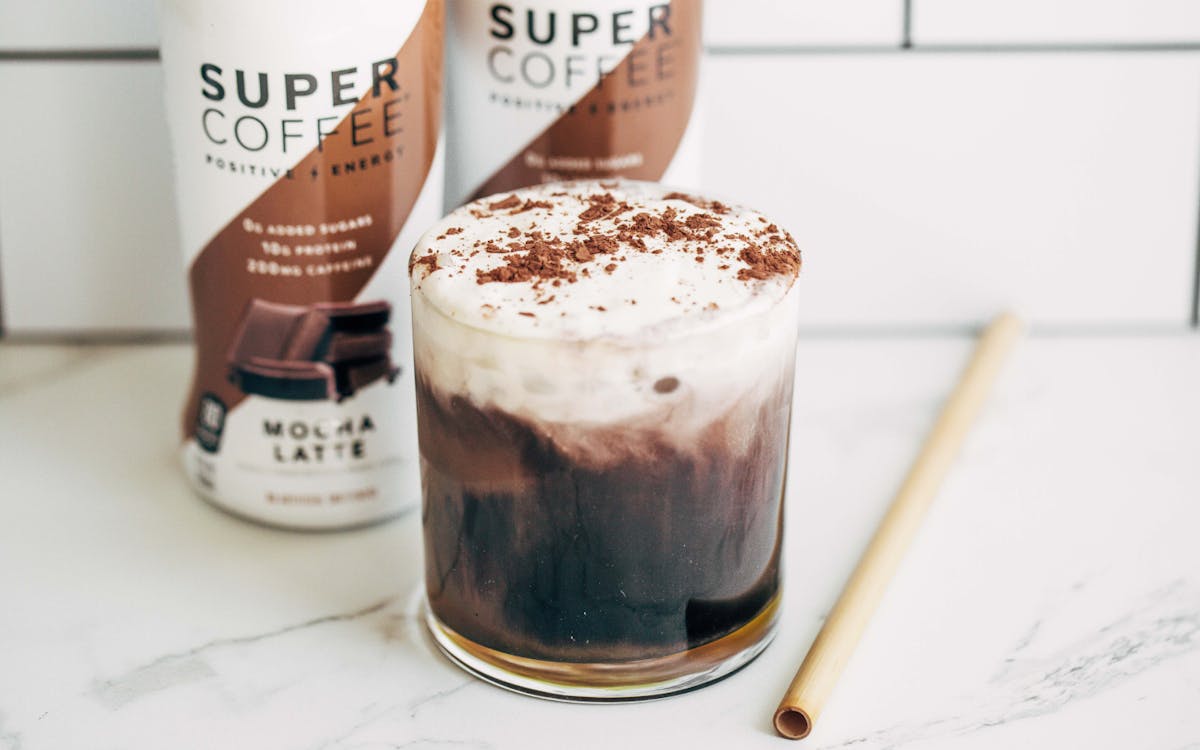
This may be the most fun latte recipe we’ve tried yet! With gooey & decadent black chocolate drizzle and a thick layer of creamy French Vanilla, just one sip of this iced latte will transport ...
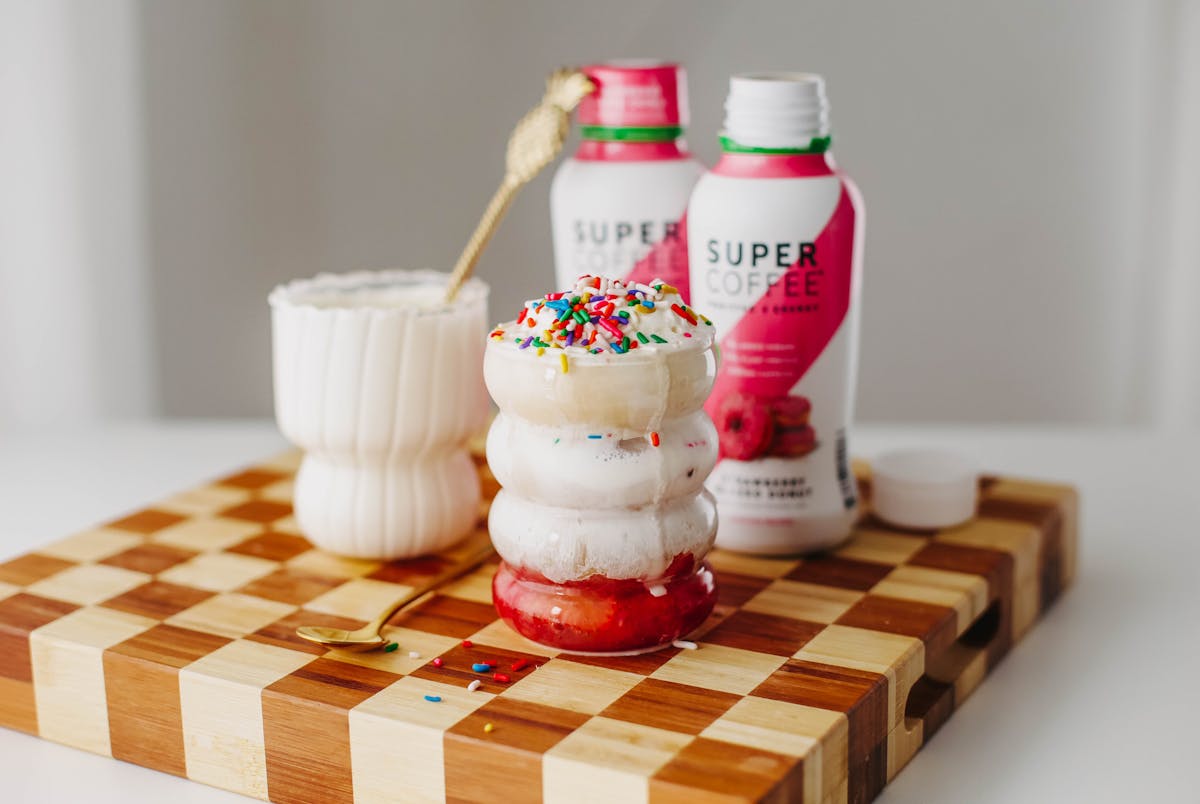
Strawberry Sprinkle Keto Coffee Recipe
Nutritional Info Calories: 274 Fat: 26.7g Carbs: 5.7g Protein: 4.5g Sugar: 2.1g Ingredients 3 strawberries, sliced. 3-4 tbsp heavy cream or half & half. Enough ice to fill a glass. 1/2 cup S...

8 Healthy Coffee Recipes That Are Better Than Starbucks
There’s no question about it. Coffee is good for you. Those who don’t like black coffee, of course, commonly add milk, cream and sugar – even if that also means adding calories, fat or carbs to the...



